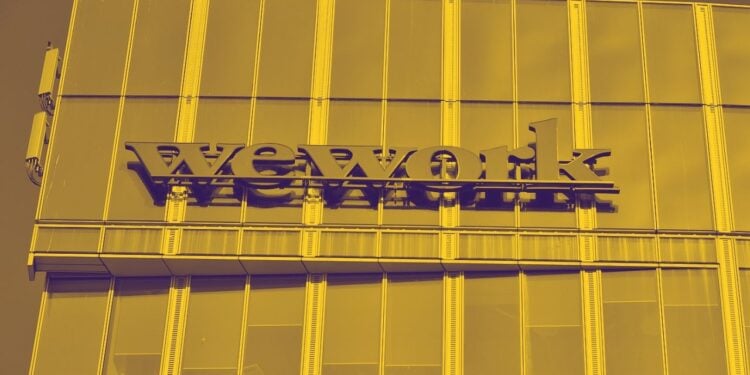What’s going on:
WeWork, despite its financial troubles and warnings of “substantial doubt” about its ability to continue operating, witnessed an unexpected 162% surge in its share price last week, which some believe is due to the “meme-stock” investing, according to Markets Insider.
This trend follows comparable movements in companies like Yellow and Tupperware, both of which also experienced sharp increases in stock prices after announcing similar financial setbacks. Markets Insider reports that these kinds of investment patterns can be traced back to early 2021, when GameStop experienced the same kind of surge — instigated by retail investors on Reddit. The investment strategy involves driving up stock prices for faltering but well-known companies, potentially offering these businesses a fresh chance to raise funds by selling shares at elevated prices.
Despite WeWork’s temporary and artificial elevation in stock price, the coworking giant ended up trading at around 20 cents by the end of last week, according to Finshots.in.
Why it matters:
WeWork is facing the very serious possibility of bankruptcy, and companies on the brink of bankruptcy traditionally experience stock price declines. However, in the world of meme stocks, companies in these situations have recorded unexpected boosts in their stock prices. This kind of unusual and temporary price movement contradicts traditional financial wisdom.
WeWork saw the resignation of three board members last week including Vivek Ranadive, Daniel Hurwitz and Veronique Laury, who reportedly left due to disagreements about company governance and strategy. The coworking provider made swift leadership changes, appointing four new directors to its board, who reportedly have previous experience in managing corporate bankruptcies and restructurings.
It’s also reported that WeWork is exploring new avenues like franchising and software services to pivot its business model and survive these financial challenges. However, it’s unclear what the effect of meme stock culture will have on the company once valued at around $50 billion in 2018.
How it’ll impact the future:
If the investment trend affects WeWork as it did in companies like Yellow and Tupperware, it might provide very temporary financial relief for the coworking giant. However, it also raises questions on whether the company stands on solid foundations. The story of WeWork reflects the evolving nature of workspaces and the shift towards more flexible, hybrid work environments. WeWork is influential as one of the major competitors in the coworking industry. No matter if the company succeeds or fails in maneuvering these challenges, the outcome will likely impact commercial real estate markets and the flexible workspace industry.
















